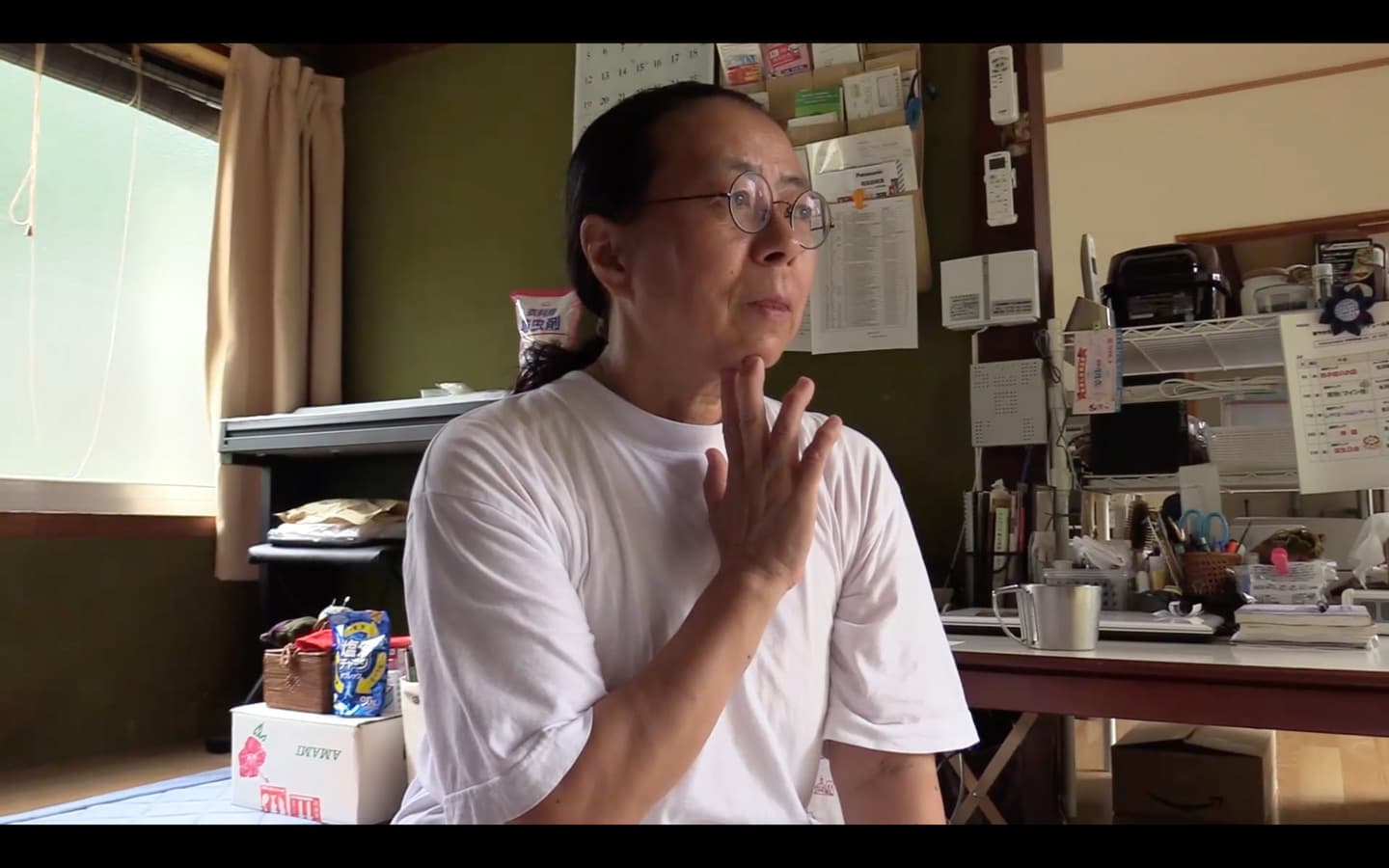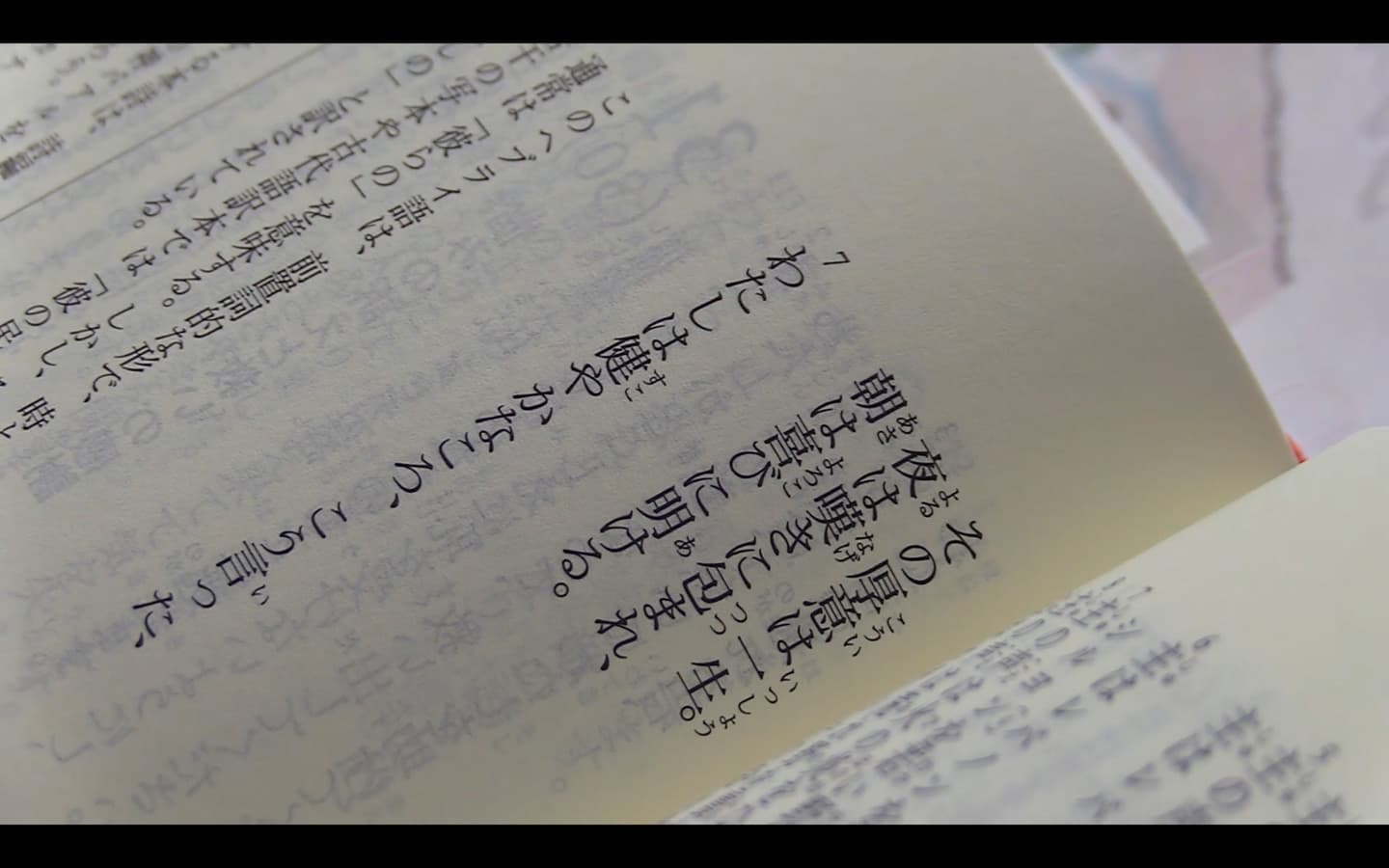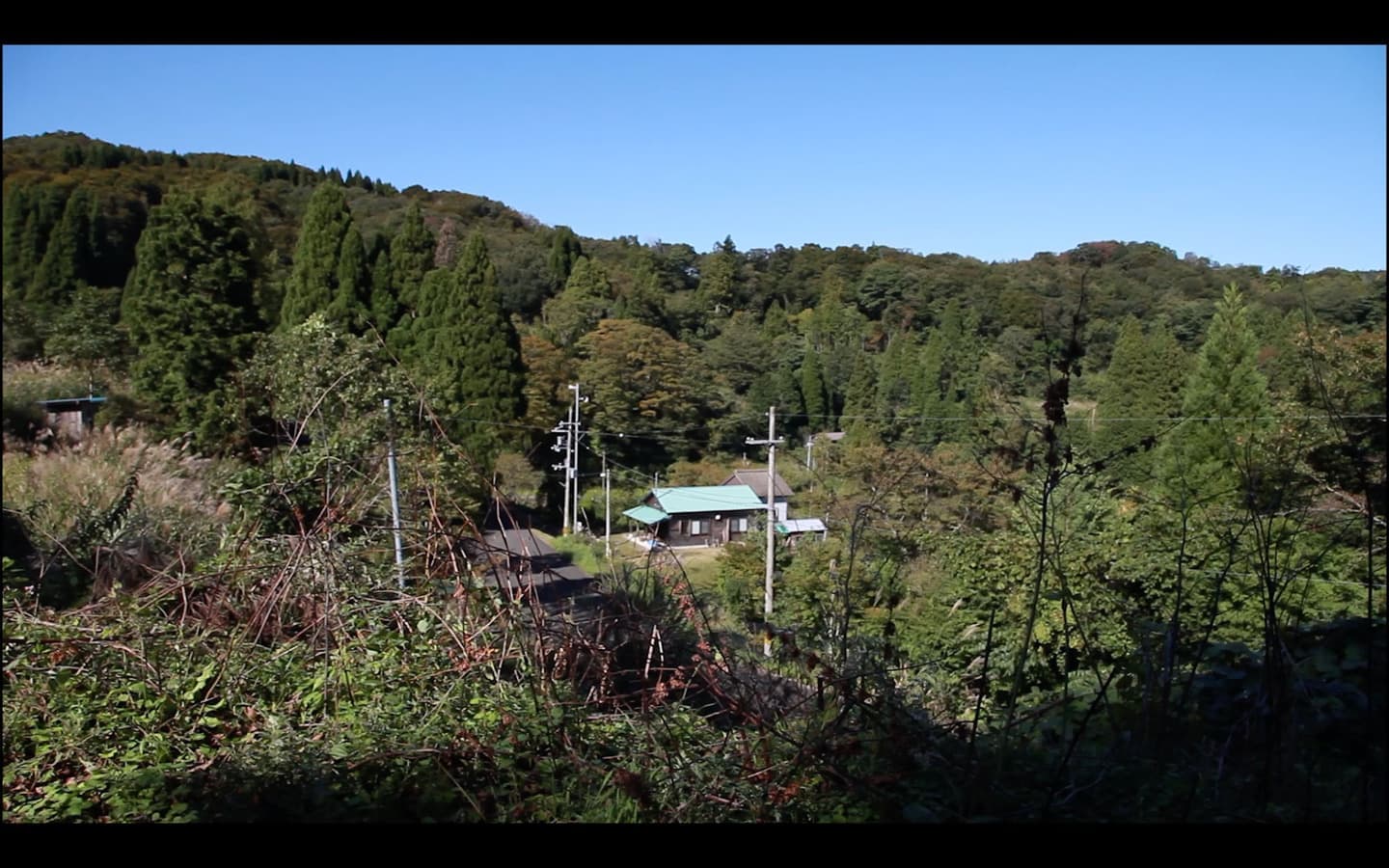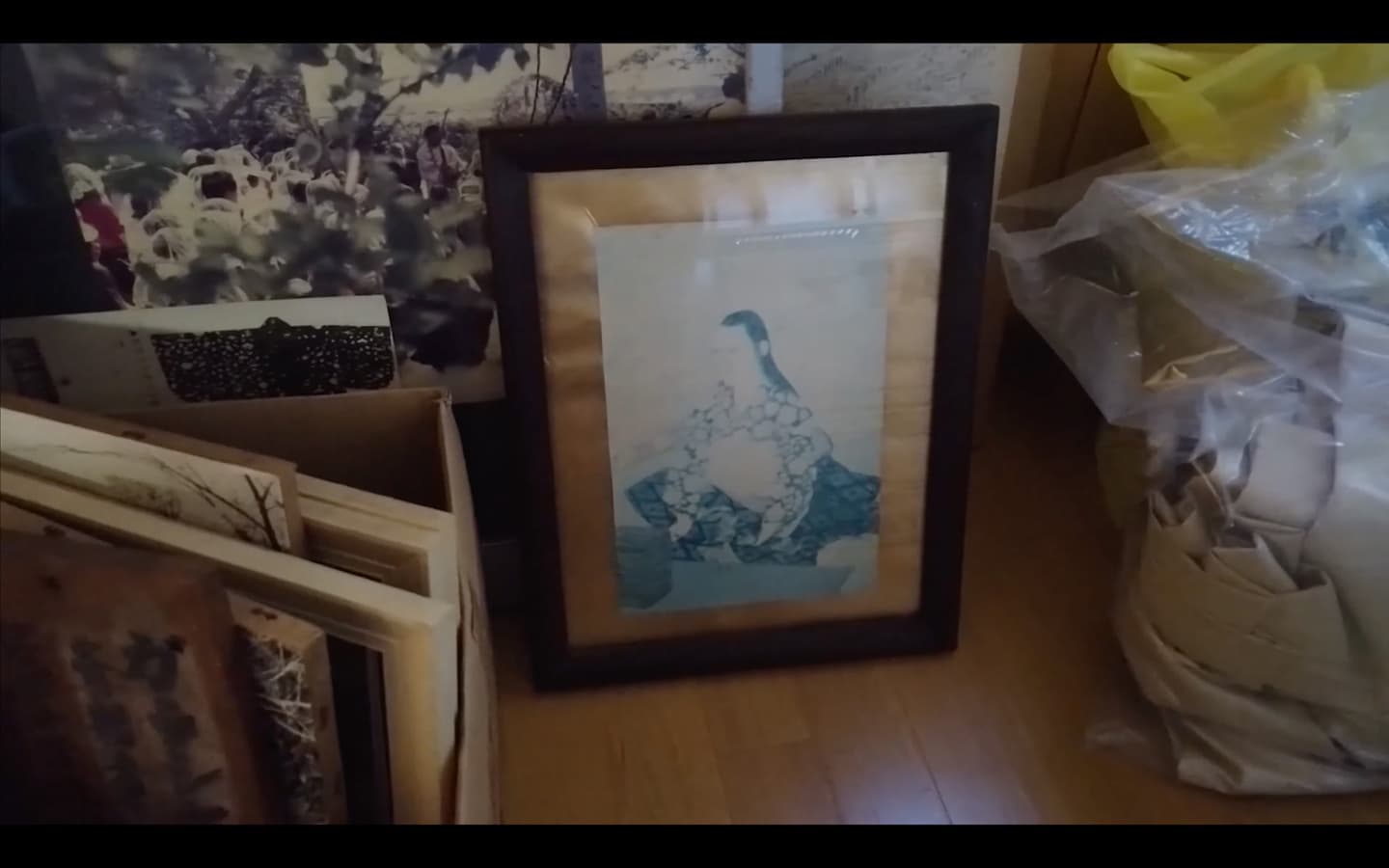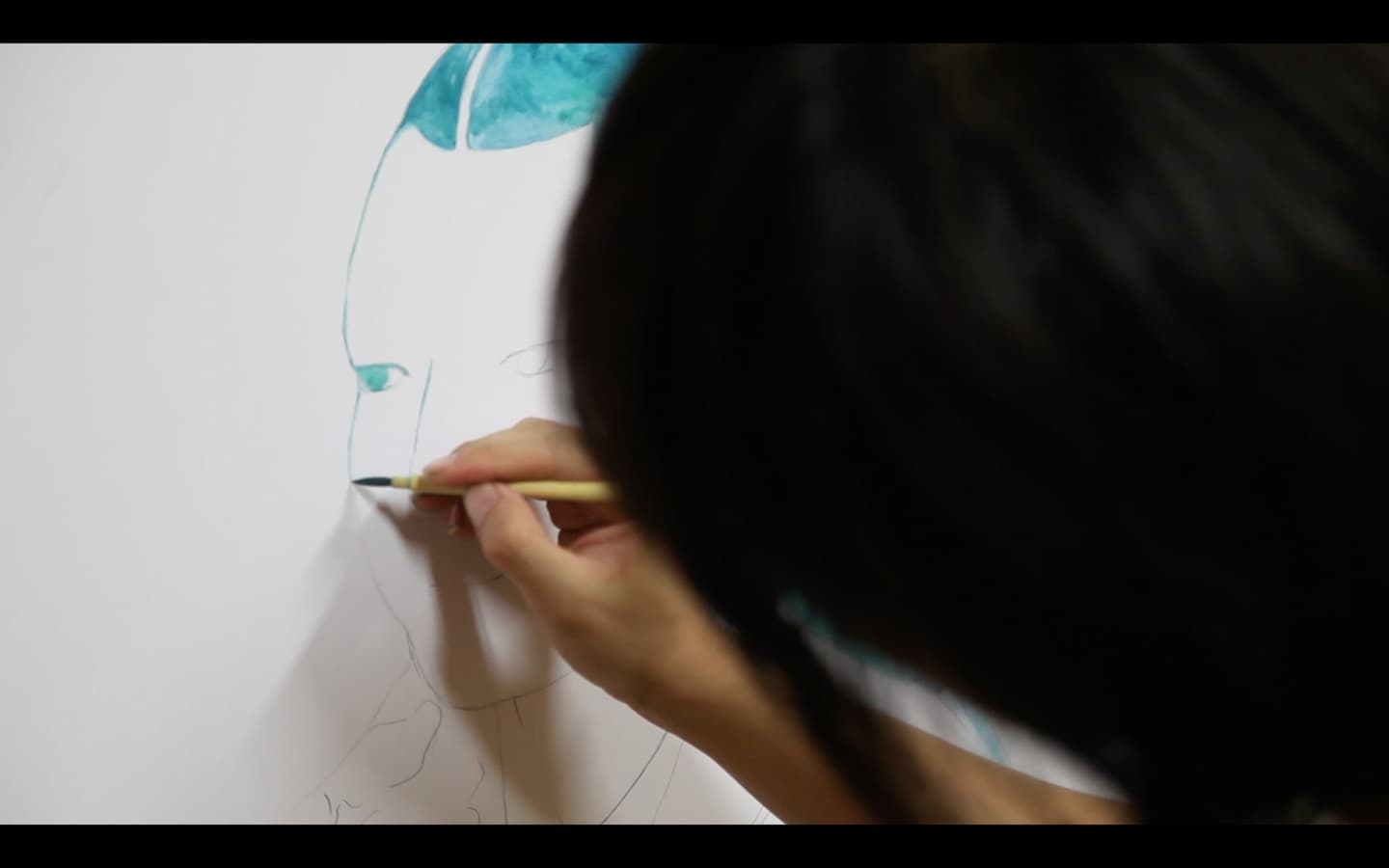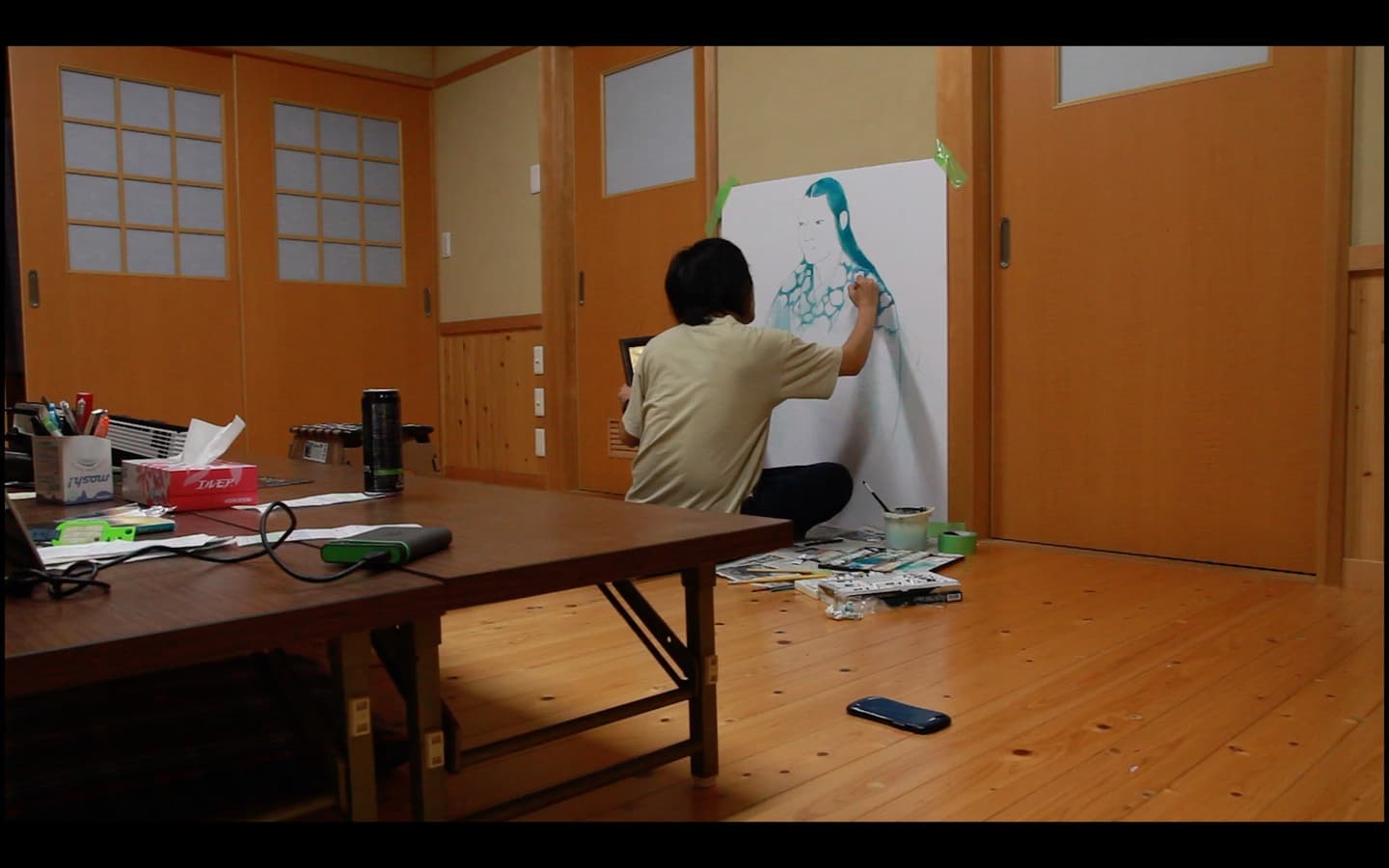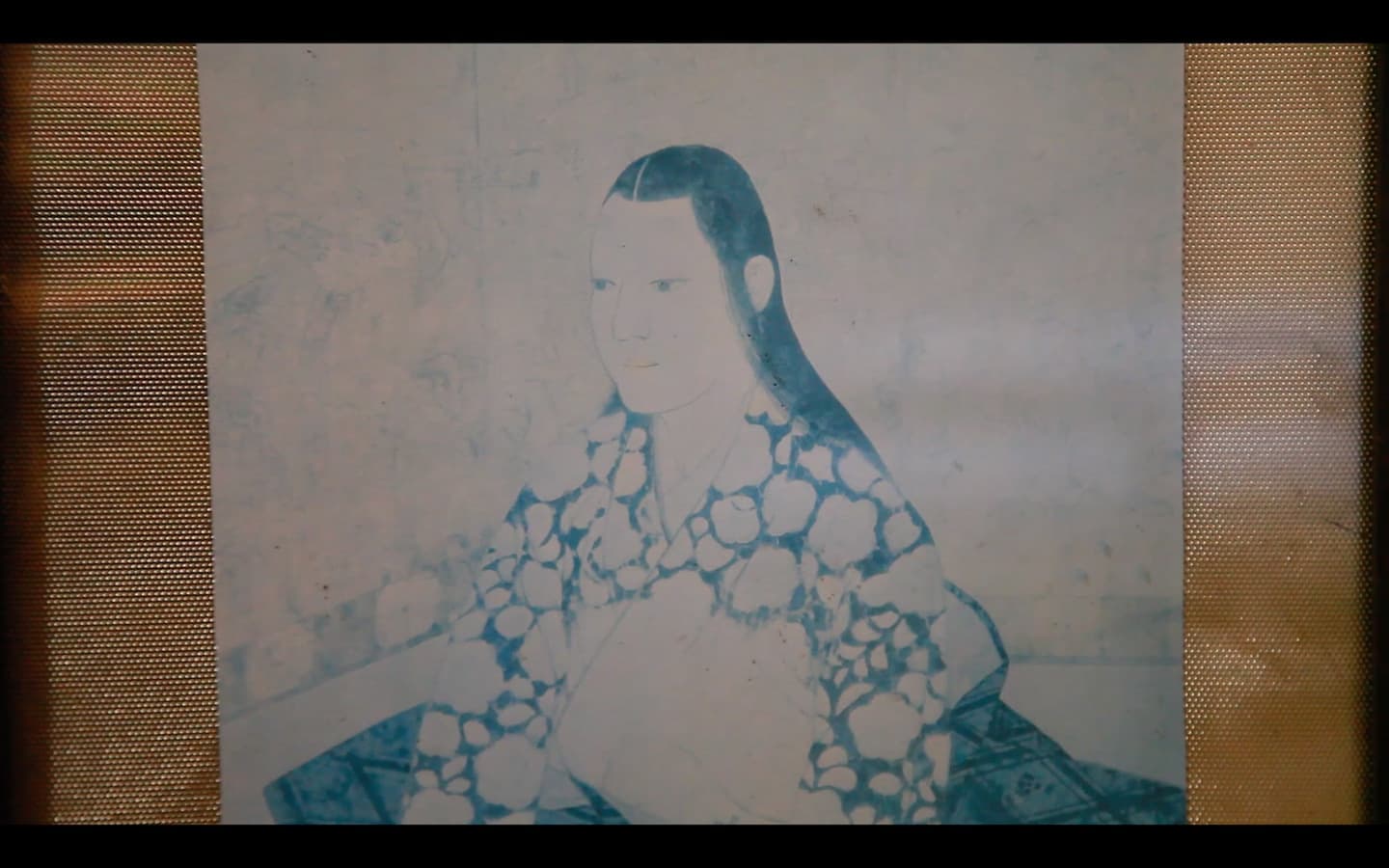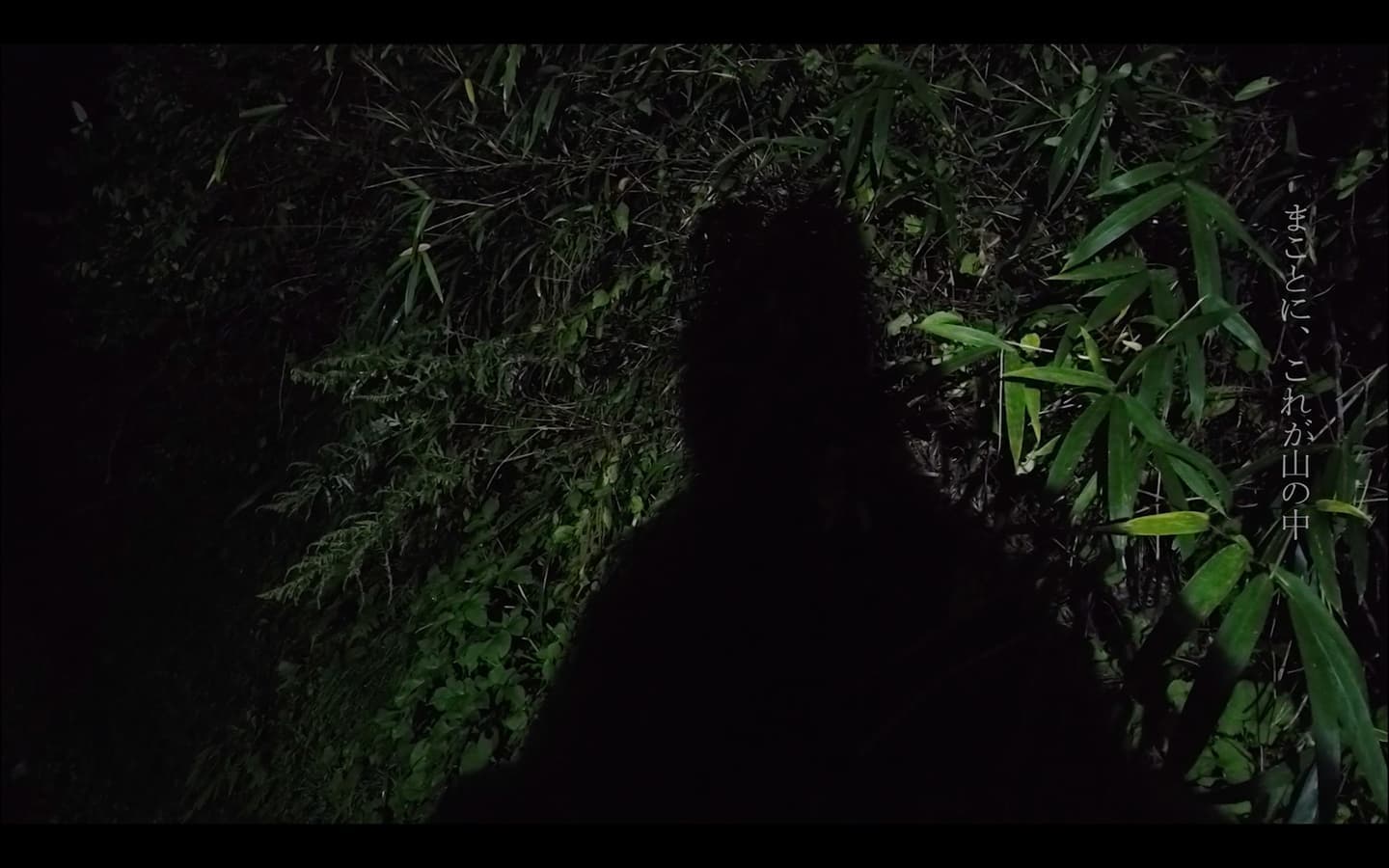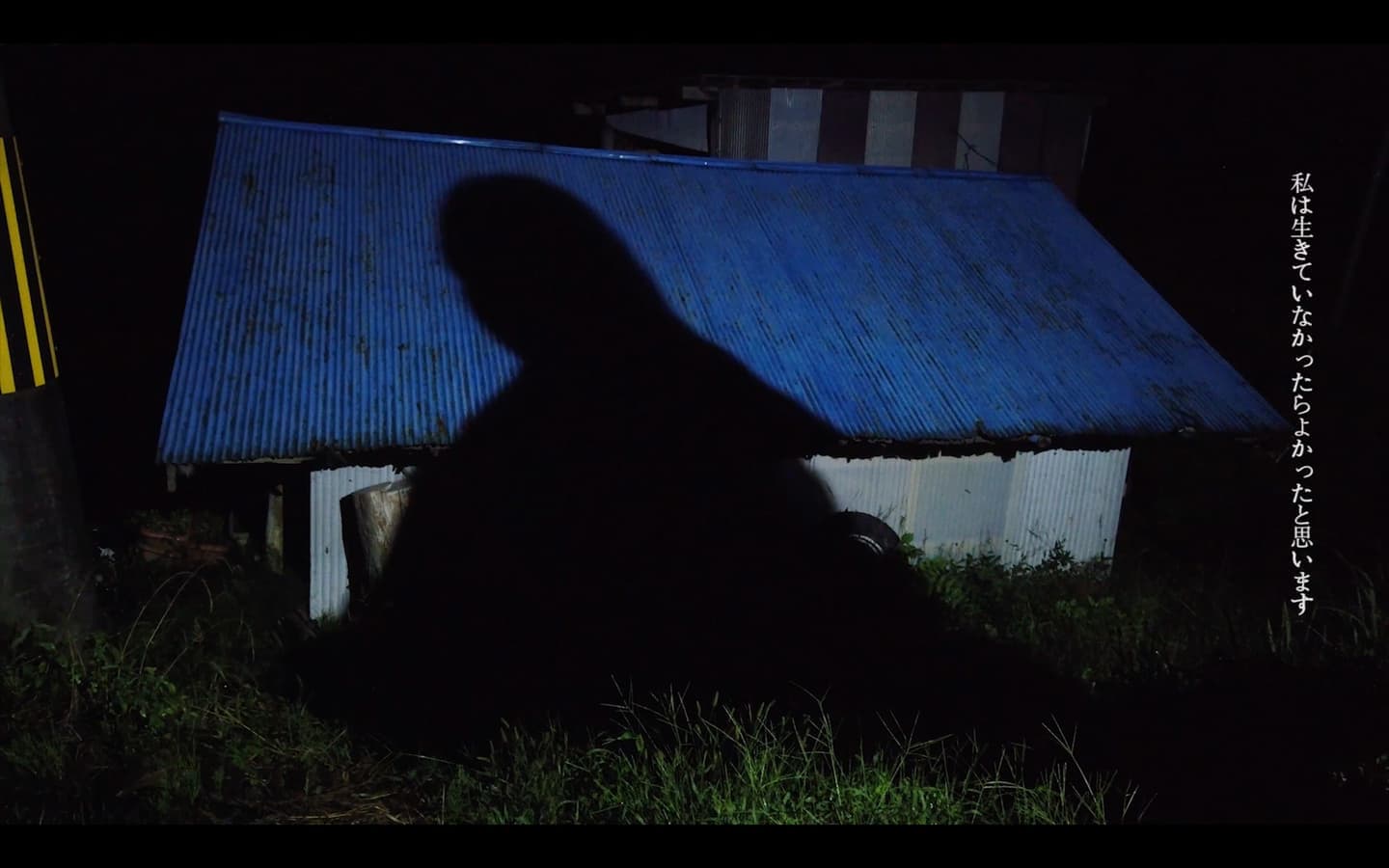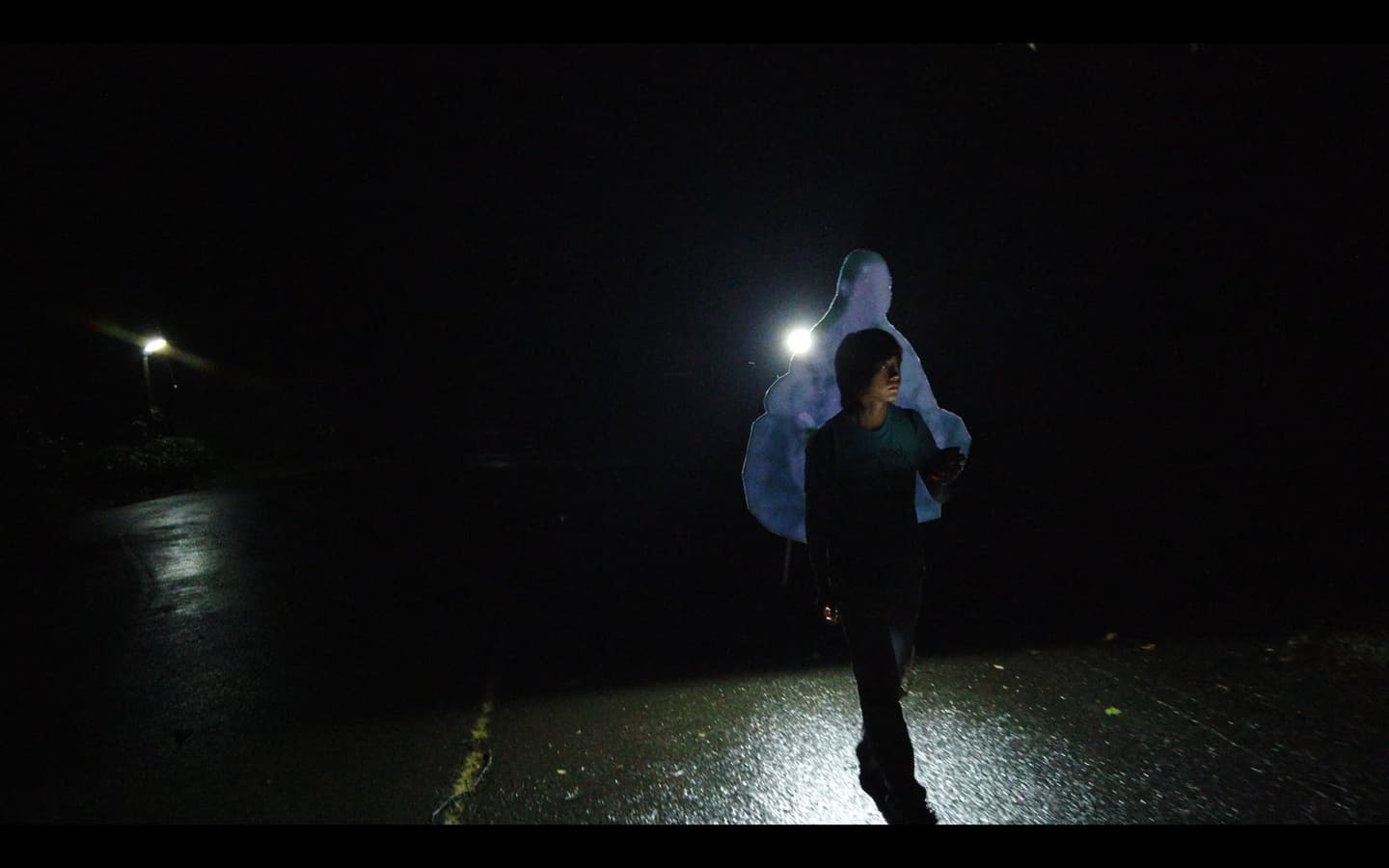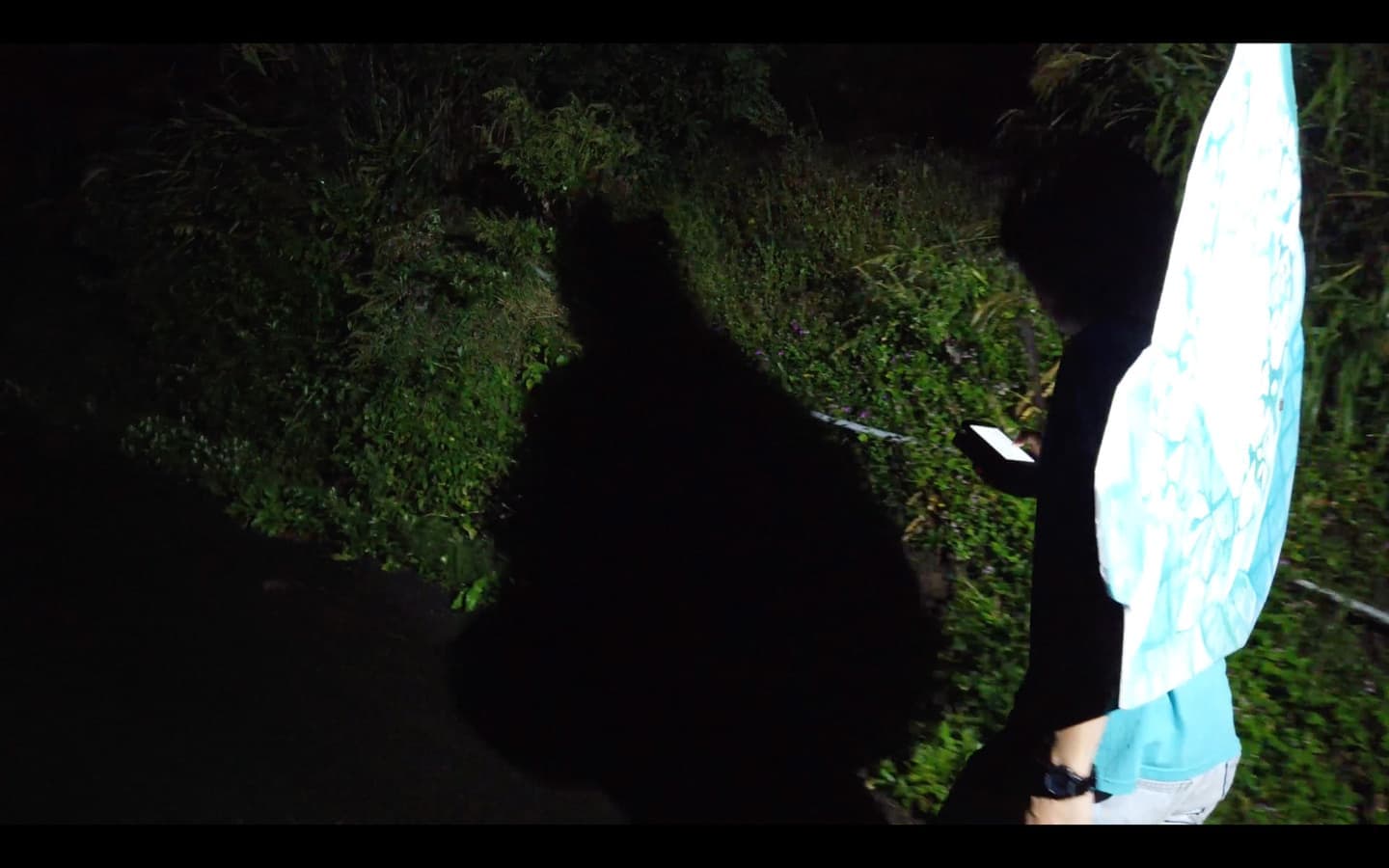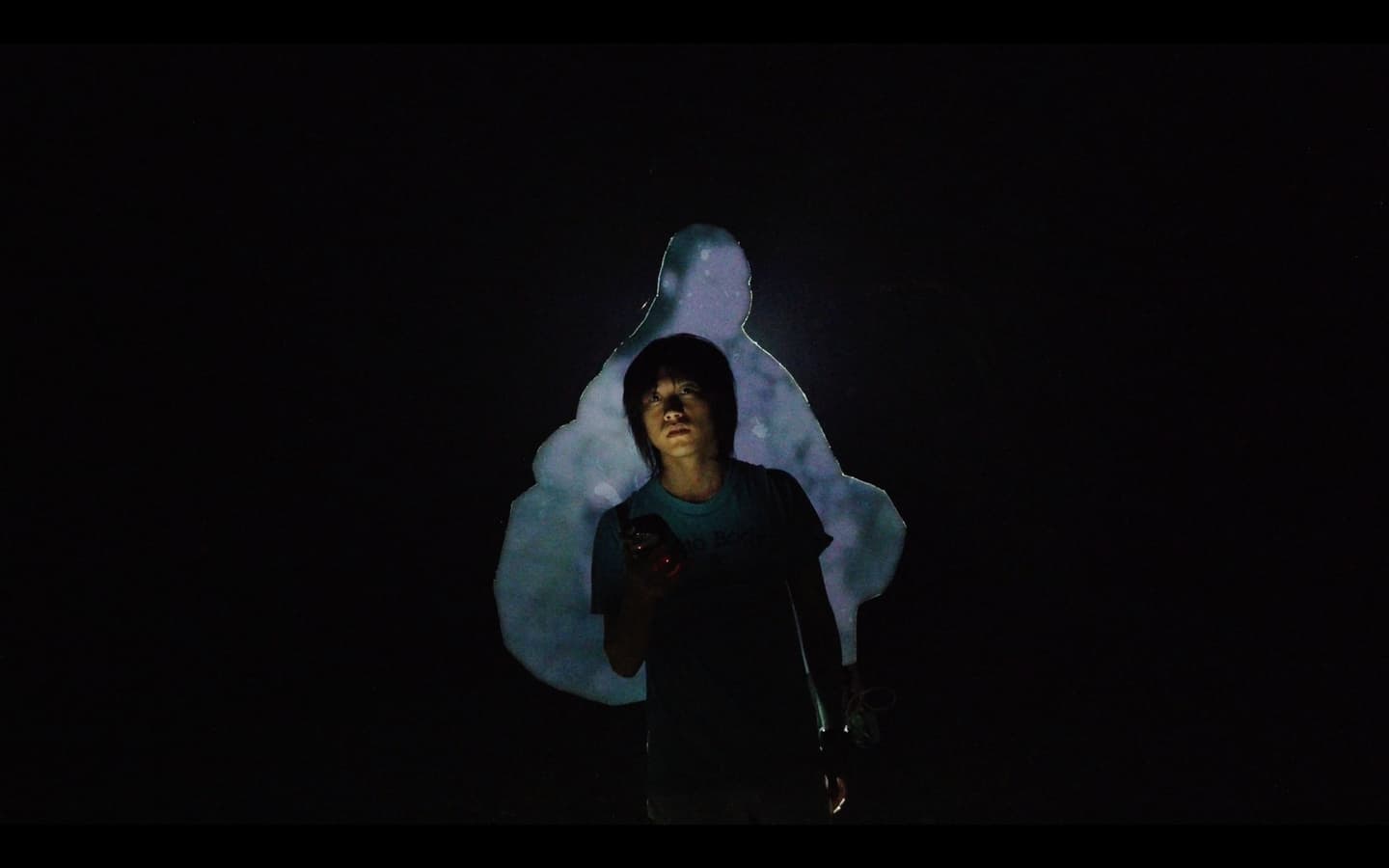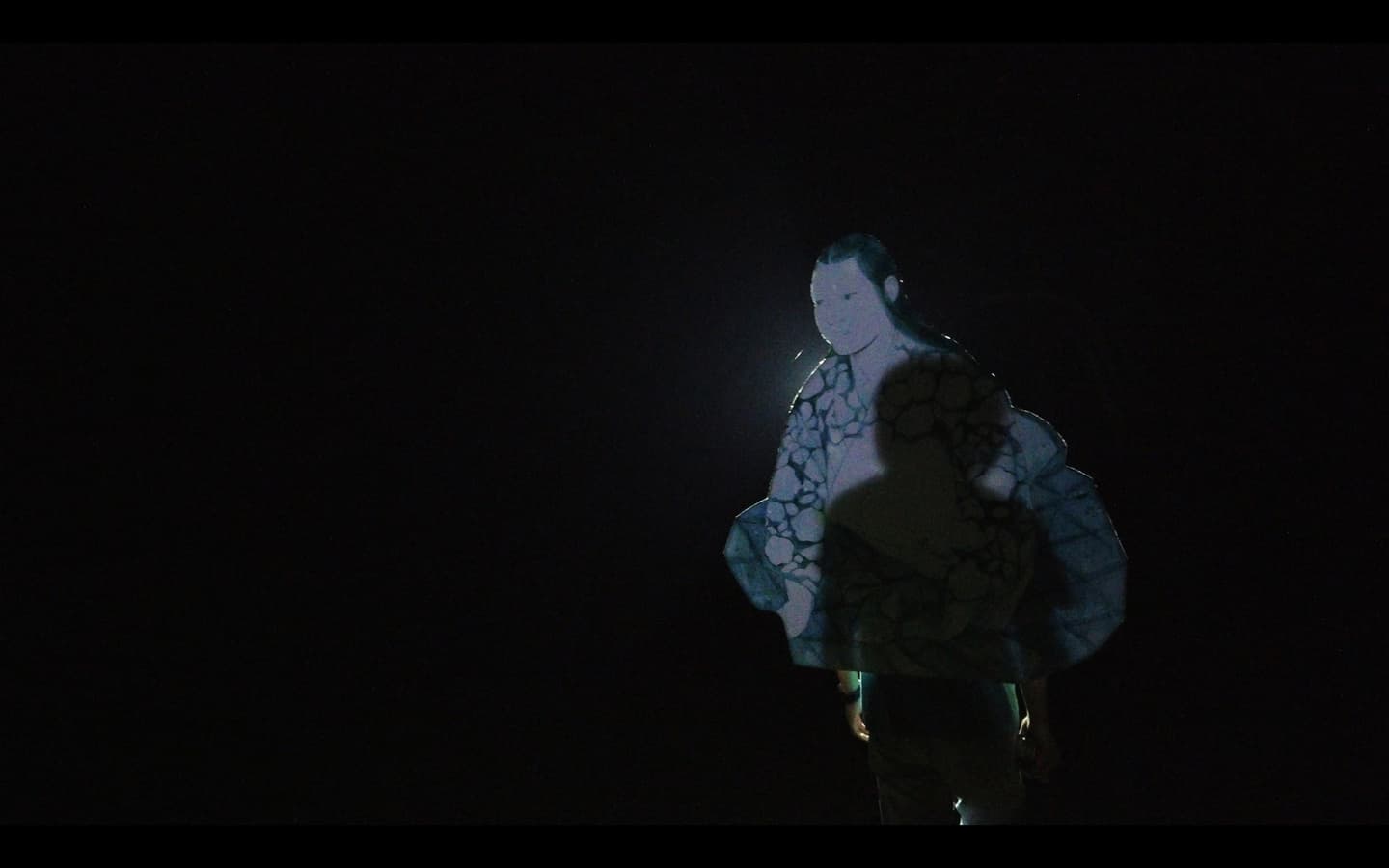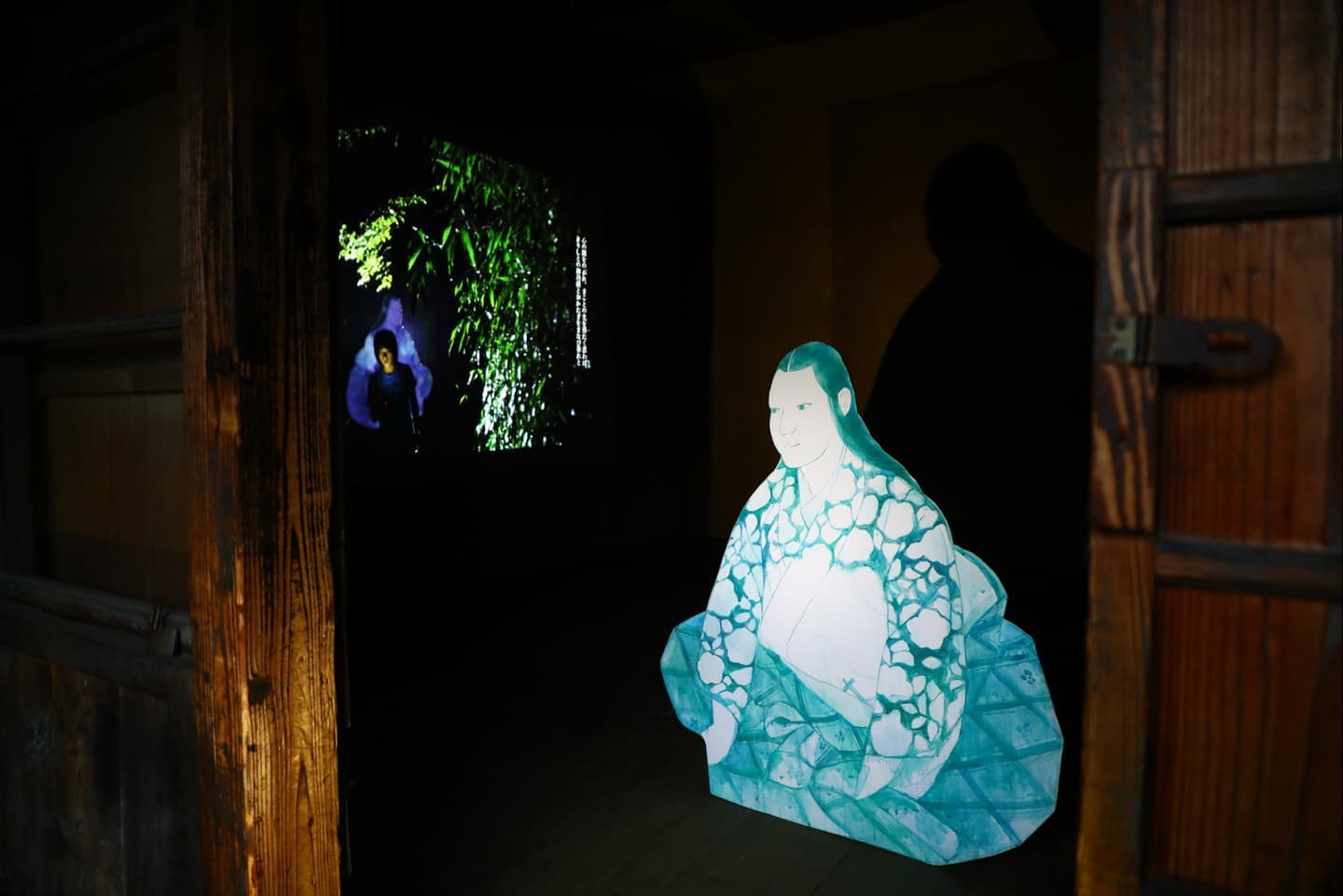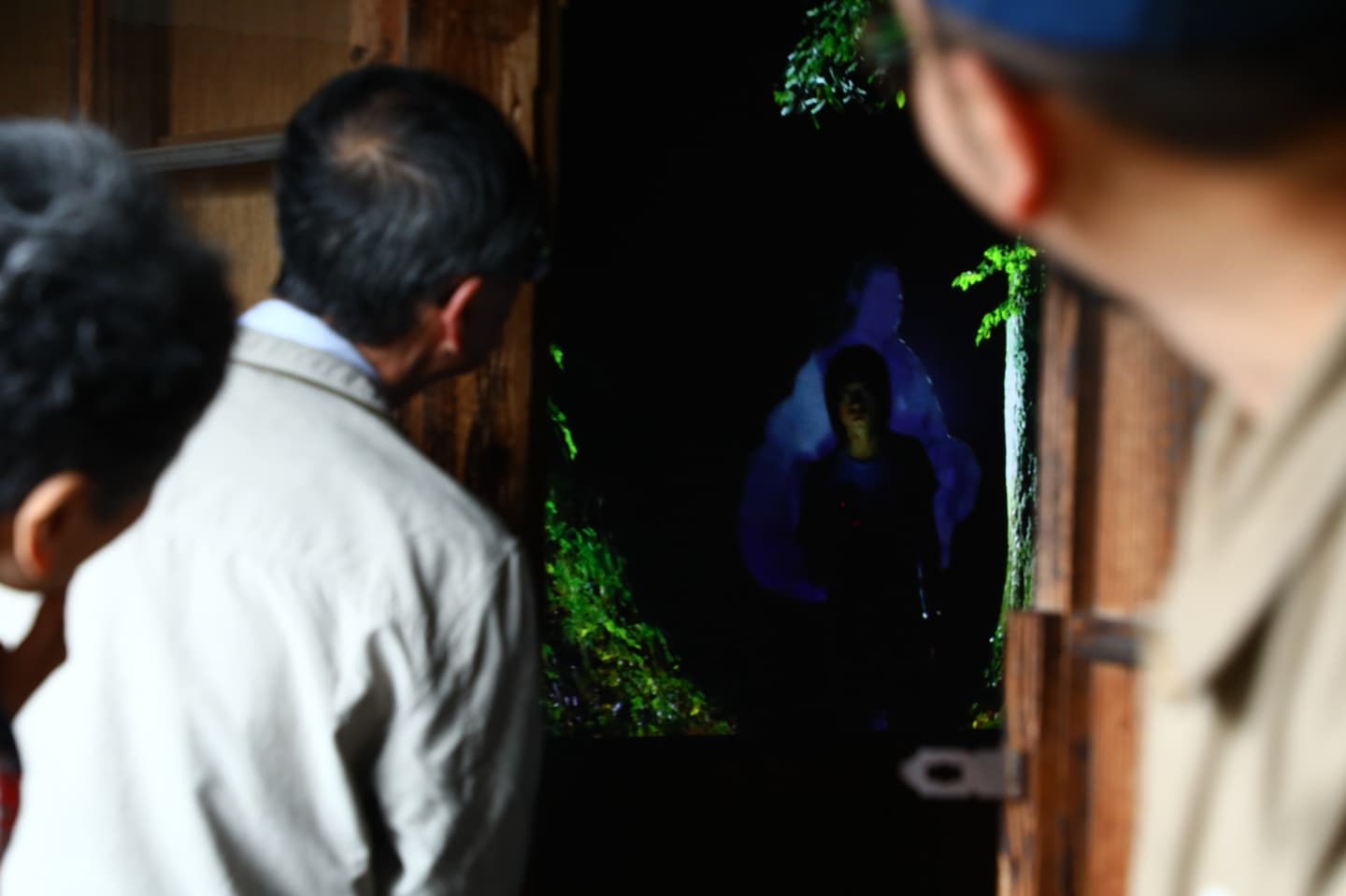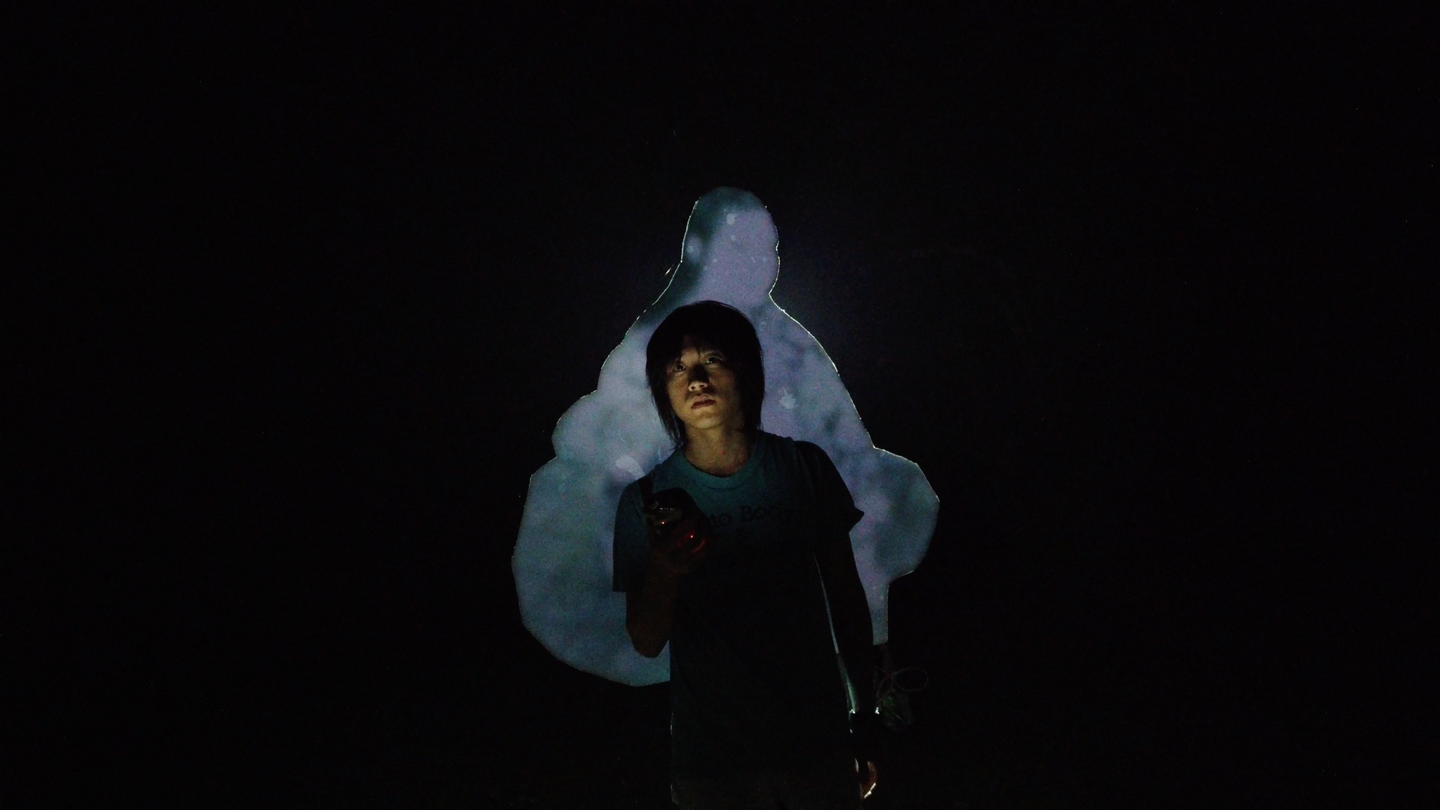
《夜が嘆きに包まれても》
At night, There are tears
2019
Single channel video / 16 min 10 sec
Styrene board, Watercolor paint
私は、京都でのアーティスト・イン・レジデンス・プログラムを通して、京丹後市の山奥にある「味土野」(みどの)という超過疎の村に、2018年から2021年までの4年間訪れ続けた。
「味土野」では、500年前に「細川ガラシャ」というキリシタンが幽閉されていたという伝説があった。父である明智光秀の謀反によって都市での暮らしを追いやられて、真っ暗な山奥でひとりキリスト教を信じていた彼女を想像した。
彼女は、なぜ自分の命を危険に晒してまで、当時伝わってきたばかりの新しい神、宗教を信じなければならなかったのだろうか。そこにはどんな満たされない寂しさや孤独があったのだろうか。
その感情を少しでも想像するために、味土野集落のただ2人の住人にお話を聞いたり、彼女に関する歴史小説などを読みながら、その気配を辿った。
現在、味土野に細川ガラシャが暮らしていた跡形は何もないが、味土野の唯一の宿泊施設「ガラシャ荘」の物置に、日に焼けて色褪せた細川ガラシャの肖像を見つけた。
それを等身大に引き伸ばして描き、背負い、村の真っ暗な夜道にその人影を落として歩いた。
味土野の2人の住人のうちの1人、槙野智子(まきの・ともこ)さんは、当時越してきたばかりの元修道女の方だった。彼女の移住の直接の理由はガラシャではなかったが、細川ガラシャも槙野さんも、時を超えて聖書を読み、その言葉が胸にあることは確かだった。
槙野さんに語ってもらったキリスト教への想いの言葉と、細川ガラシャが登場する様々な歴史小説の中に描かれた彼女の言葉を書き出した。
そうして幾つもの言葉を、あたかも1人の人間の言葉として混ざり合うように構成し、私自身が読み上げながら、影を背負い、その祈りの気配を感じようとした。
タイトルは槙野さんが一番好きな聖書の一節から。
・映像中に引用させてもらった小説
『細川ガラシャ夫人』三浦綾子
『細川ガラシア夫人』ヘルマン・ホイヴェルス
『細川ガラシャ夫人』森田草平
『ガラシャに続く人々』若城希伊子
『朱なる十字架』永井路子
『胡桃と酒』司馬遼太郎
『鎧われた花』杉本苑子
『味土野幻想』芦田行雄
Through an artist-in-residence program in Kyoto, I visited “Midono,” a deeply depopulated village in the mountains of Kyotango City, over four years from 2019 to 2021.
There is a legend that 500 years ago, a Christian woman named Gracia Hosokawa was confined in Midono. I imagined her, banished from city life due to her father Akechi Mitsuhide’s rebellion, believing in a new god in the pitch-dark mountains. Why did she feel the need to risk her life to believe in a new religion that had only just arrived in Japan? What kind of unfulfilled loneliness or solitude might have existed there?
To imagine those feelings even a little, I spoke with the only two residents of Midono and read historical novels about her to trace her presence.
Today, there is no trace of Gracia Hosokawa’s life in Midono, but I found a sun-faded portrait of her in a storage room of “Gracia-sou,” the village’s only inn. I enlarged the image to life-size, painted it, carried it on my back, and walked the dark village roads, casting her shadow.
One of the two residents, Tomoko Makino, had just moved to Midono at the time and was a former nun. Although her move wasn’t directly related to Gracia, both she and Gracia had read the Bible and carried its words in their hearts across time.
I wrote down Makino-san’s thoughts on Christianity and life, and words attributed to Gracia from various historical novels. I then composed them so they would mix as if from a single person, and read them aloud myself as I carried the shadow, and tried to sense the aura of her prayer.
Novels I quoted
“Lady Garasha Hosokawa” by Ayako Miura
“Lady Garasha Hosokawa” by Hermann Høiberg
“Lady Garasha Hosokawa” by Sōhei Morita
“The People Who Followed Garasha” by Kiiko Wakashiro
“The Crimson Cross” by Michiko Nagai
“Walnuts and Sake” by Ryōtarō Shiba
“The Armored Flower” by Sonoko Sugimoto
“The Fantasy of Midono” by Yukio Ashida
